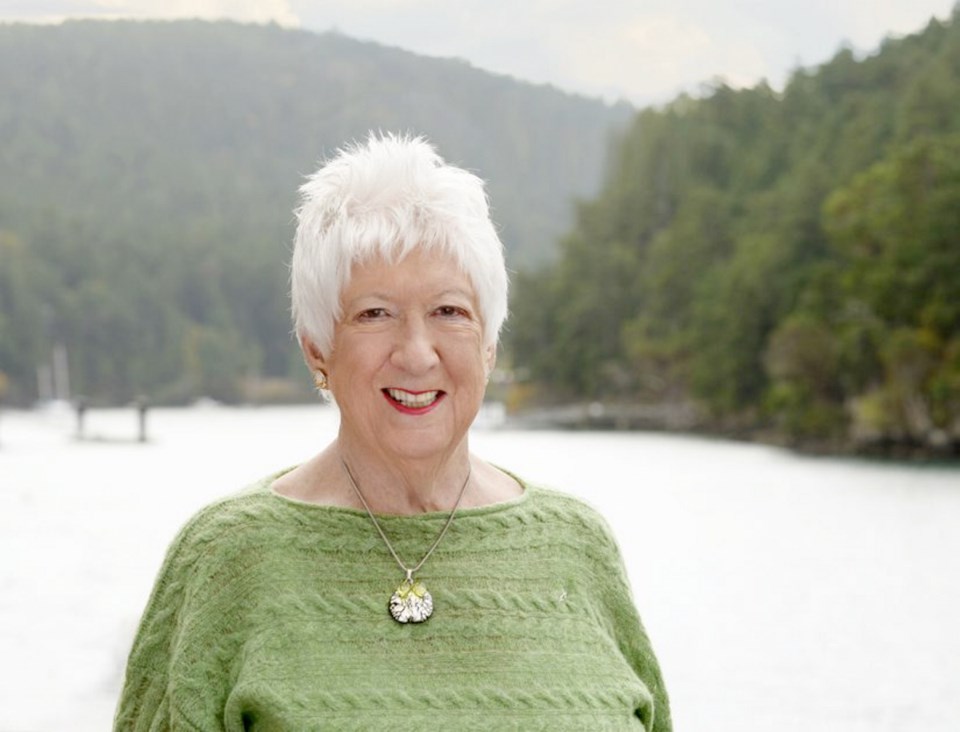 Poking through old news stories about lighthouses the other day, one name kept popping up: Pat Carney.
Poking through old news stories about lighthouses the other day, one name kept popping up: Pat Carney.
No surprise there. As an unelected senator, Carney was the self-appointed Defender of the Coast, tackling small-town topics ignored by elected politicians whose focus was on the cities, where the votes were.
A fight to keep a fuel dock in Kyuquot? There was Carney. Navigational aids for mariners? There she was again, battling Ottawa’s bureaucracy. Ditto for problems tied to fishing, forestry, aboriginal women …
“I was constantly dealing with sunken ships, crab issues, tidewater issues, unemployment insurance issues in communities where there was no unemployment office,” she says.
You can find that reflected in Dock Debates, one of the tales in On Island: Life Among the Coast Dwellers, Carney’s book of short stories, released this year. The piece is about a member of Parliament who doggedly works to replace a burned-down federal dock on an unnamed island that nevertheless sounds an awful lot like Saturna, where Carney lives.
In fact, none of the places in her book have names, just descriptions: the Wharf Store, the Harbour, the Big Island. Same goes for the recurring characters: the Professor, the Master Gardener, Blondie the self-reliant beauty who finds herself buried in unsolicited assistance when she decides to build her own house.
The namelessness is deliberate, allowing readers room to fill in the blanks on their own. The reaction from coastal B.C. has been rewarding, Carney says. “Everybody identifies with the characters. People recognize them as authentic.” Indeed, residents of half a dozen islands have sworn they know the character identified only as the Church Warden.
In truth, the characters are composites, Carney says. Same goes for the locations. She compares her stories with braiding a rag rug, a little bit of that person here entwined with a bit of that community there. “I wove all these stories together.”
Carney sounds likes she’s having a ball. She’ll read at the Sidney and Peninsula Literary Festival this weekend, then at Bamfield’s Oysters, Authors and Ale event Sept. 30. Readers tell her they enjoy her book. “Enjoy” is not a verb often heard by politicians, which is what she was in her previous life.
Elected as the Progressive Conservative MP for Vancouver Centre in 1980, she was a Mulroney-era cabinet appointee who served as Canada’s trade minister when NAFTA was negotiated. She might be best known for her years in the Senate, where she sat from 1990 to her early retirement at age 72 in 2008. The Vancouver Sun’s Barbara Yaffe once wrote that Carney did the impossible: “She made the Senate look as if it was inhabited by live human beings preoccupied by the affairs of state.”
If that all seems a long way from the gumbooted coast, so does China, where Carney was born. Her parents met while sailing there from Vancouver; her mother was supposed to go to Hong Kong to marry a cousin, but exited the Empress of Russia with Jim Carney and wed him instead.
Chased back to Canada by war, the Carneys eventually settled on a ranch in the Kootenay. Pat grew up to become a business columnist for the Sun, which is how she got to know the coastal fishing and forestry towns from Alaska south. She then ran her own economic consulting company in the Far North.
Retirement has not meant an end to her involvement in public life; her current passion is goading the B.C. community groups that have taken over 22 old lighthouses into getting heritage plaques from Parks Canada.
She is also up to her ears in community life on Saturna, which is one of the reasons she likes living there. There is an automatic expectation that people on the Gulf Islands, on the isolated outposts of the coast, will pitch in and take on those tasks that urbanites leave to government, she says.
“I think the people who live in small towns have a sense of community that you don’t get in the big cities,” she says. “They have to rely on themselves and each other.” She likes them. It shows in her book.



